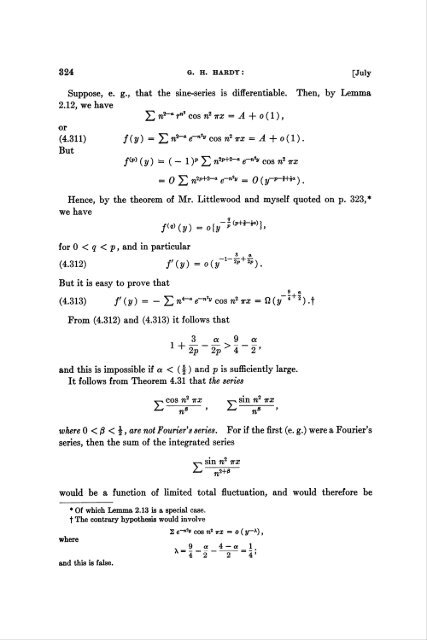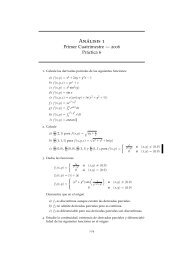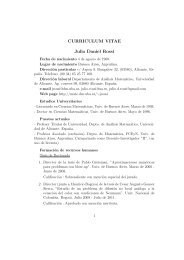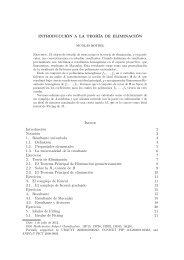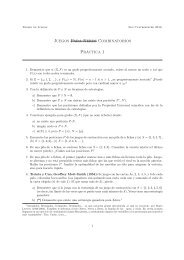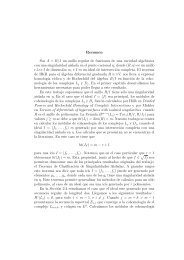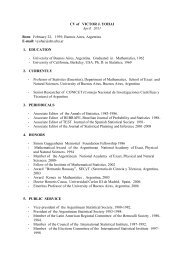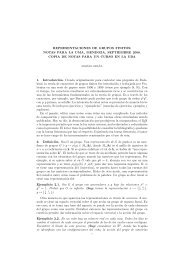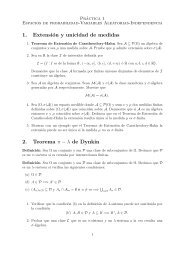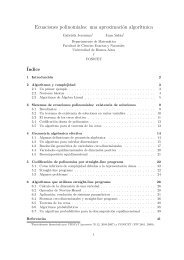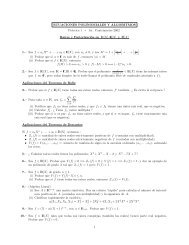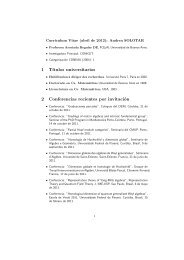WEIERSTRASS'S NON-DIFFERENTIABLE FUNCTION
WEIERSTRASS'S NON-DIFFERENTIABLE FUNCTION
WEIERSTRASS'S NON-DIFFERENTIABLE FUNCTION
You also want an ePaper? Increase the reach of your titles
YUMPU automatically turns print PDFs into web optimized ePapers that Google loves.
324 G. H. HARDY: [July<br />
Suppose, e. g., that the sine-series is differentiable. Then, by Lemma<br />
2.12, we have<br />
2 n2-* rn* cos n2 ttx = A + o ( 1 ),<br />
or<br />
(4.311) fiy) = £ n2— er»*» cos n2 xa; = ^ + o ( 1 ).<br />
But<br />
/W(î/) = (-1)pZ «2p+2_a e""2* cos n2 ttx<br />
= 0 Y. n2**2-" e-n*» = 0 iy-v-H*).<br />
Hence, by the theorem of Mr. Littlewood and myself quoted on p. 323,*<br />
we have<br />
for 0 < q < p, and in particular<br />
(4.312) fiy) =oiy-1~T*+h.<br />
But it is easy to prove that<br />
(4.313) fiy) = - Y n4~a e-"2" cos n2 ttx = 0(y * *).f<br />
From (4.312) and (4.313) it follows that<br />
3 a 9 a<br />
+ 2^_2^>4~2'<br />
and this is impossible if a < ( f ) and p is sufficiently large.<br />
It follows from Theorem 4.31 that the series<br />
where 0 < ß < \, are not Fourier's series. For if the first (e. g.) were a Fourier's<br />
series, then the sum of the integrated series<br />
n2+ß<br />
would be a function of limited total fluctuation, and would therefore be<br />
* Of which Lemma 2.13 is a special case,<br />
t The contrary hypothesis would involve<br />
where<br />
and this is false.<br />
S e~"2» cos n2 xx = o ( y~K),<br />
9 _a 4 -a 1,<br />
X~4 2 2 ~4'


